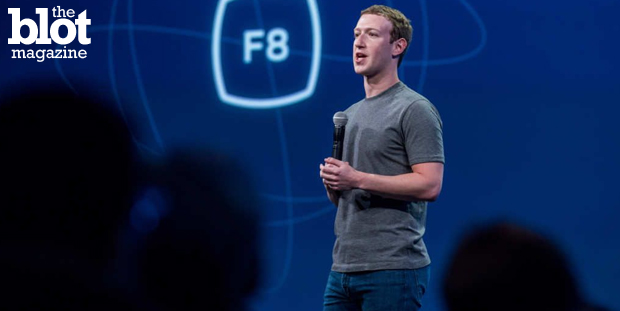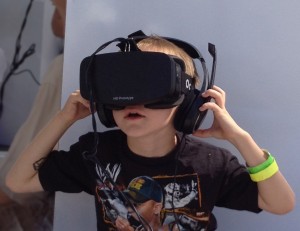
There was plenty to use and review at this year’s Facebook F8 Developers Conference in San Francisco, as Facebook execs and developers went over the latest apps, acquisitions and ideas for 2015. The theme for this year’s conference, held March 25-26, was basically “Move fast and make money.”
 Things like Facebook’s “Messenger” app have proven to be huge successes, tripling in size from this time last year, and even acquiring new partners like ESPN. This also shows that Facebook can still innovate, and not simply buy out more-clever competitors. Messenger also started a new “peer-to-peer” payment system to allow users to send money to each other via debit card. You can’t send money via Messenger to businesses yet, but this has led to the development of the “Businesses on Messenger.” This upcoming app will allow businesses to send receipts, notify customers that their packages have shipped, and provide basic customer service directly over Messenger. This will cut down on e-mails being seen as spam by new customers, and make a more cohesive communication arc with new users.
Things like Facebook’s “Messenger” app have proven to be huge successes, tripling in size from this time last year, and even acquiring new partners like ESPN. This also shows that Facebook can still innovate, and not simply buy out more-clever competitors. Messenger also started a new “peer-to-peer” payment system to allow users to send money to each other via debit card. You can’t send money via Messenger to businesses yet, but this has led to the development of the “Businesses on Messenger.” This upcoming app will allow businesses to send receipts, notify customers that their packages have shipped, and provide basic customer service directly over Messenger. This will cut down on e-mails being seen as spam by new customers, and make a more cohesive communication arc with new users.
“A lot of people think about Facebook as this one blue app. The Facebook company is synonymous with the Facebook product,” CEO Mark Zuckerberg told Wired magazine. “But that is becoming less and less true. Not because the Facebook app is becoming less important; I think it’s actually grown in importance in the world. But because now there are these other services like Messenger, which has 600 million monthly active users. Whatsapp has 700 million. Instagram has 300 million. Groups has 700 million. Those are all continuing to grow at an even faster rate than the core Facebook app.”
Facebook had a banner year in the revenue department, making more than $12 billion, a 60 percent increase over 2013. This is thanks to many new services coming into the Facebook fold, such as the apps above, which are growing faster than Facebook itself. Now, Facebook is looking for more ways to connect and innovate while looking for ways to help developers capitalize on all of this controlled traffic.
“Video is growing very quickly on Facebook. A lot of people compare that to YouTube. I think that kind of makes sense. YouTube isn’t the only video service, but I think it’s the biggest and it probably makes more sense to compare Facebook video to YouTube rather than Netflix because that’s a completely different kind of content,” Zuckerberg said later in Wired. “When we are thinking about stuff like embeds we are not thinking about how we are competing with YouTube. We are thinking about how are we going to make it more useful for people to share stuff on Facebook.”
 Facebook also announced that it has acquired Oculus, a developer of gamer headsets as seen in the above picture. These headsets cover your face in a screen to get the full experience, called the Oculus Rift. This virtual-reality set is poised to evolve from just games. Imagine enjoying a courtside seat at a game, studying in a classroom of students and teachers all over the world or consulting with a doctor face-to-face, just by putting on goggles in your home. Things that were pure fantasy 20 years ago are starting to enter our reality through the Facebook digital ecosystem.
Facebook also announced that it has acquired Oculus, a developer of gamer headsets as seen in the above picture. These headsets cover your face in a screen to get the full experience, called the Oculus Rift. This virtual-reality set is poised to evolve from just games. Imagine enjoying a courtside seat at a game, studying in a classroom of students and teachers all over the world or consulting with a doctor face-to-face, just by putting on goggles in your home. Things that were pure fantasy 20 years ago are starting to enter our reality through the Facebook digital ecosystem.
Evander Smart is a contributing journalist for TheBlot Magazine.





